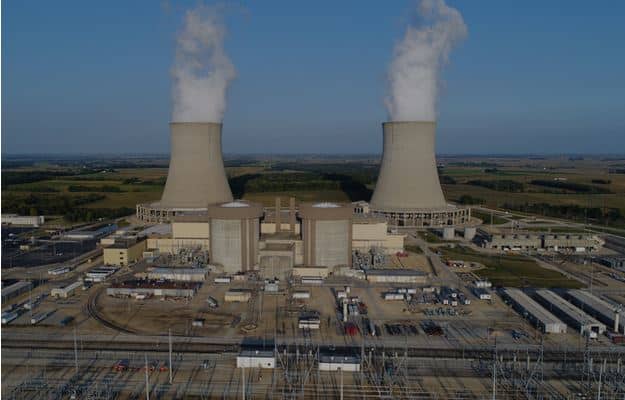Senate Bill Aims to Restore U.S. Leadership in Nuclear Energy, Promote Safe Civil Nuclear Programs

U.S. Senate lawmakers introduced legislation on April 8 to create an Executive Office for Nuclear Policy. The bill, titled “International Nuclear Energy Act of 2022,” aims to develop a nuclear export strategy to counteract the growing influence of China and Russia on global nuclear energy development.
The bill, introduced by Chairman of the Senate Energy and Natural Resources Committee Joe Manchin (D-WV) and Ranking Member of the Senate Foreign Relations Committee Jim Risch (R-ID), aims to reestablish the U.S. leadership role in nuclear energy. China and Russia have state-owned and sponsored nuclear suppliers, enabling them to support their nuclear exports with financing and other incentives that U.S. nuclear suppliers are unable to match.
Russia’s invasion of Ukraine has raised global energy security concerns, and therefore the proposed legislation is expected to establish a strategic infrastructure fund working group to determine the best way to fund projects that are crucial to national security. The legislation would also create programs to support international nuclear energy cooperation, including market analysis, education, finance, security, training, and safeguards required for civil nuclear programs.
Under the proposed bill, the government and private civil nuclear vendors would enhance their cooperative relationship. The legislation would expand the Export-Import Bank program on Transformational Exports to add civil nuclear facilities and associated goods. Further, the bill would accelerate nuclear export procedures for countries defined by the U.S. Energy Secretary. As part of the bill, a U.S. Nuclear Fuels Security Initiative would be initiated to reduce U.S. allies’ reliance on any nuclear fuel sourced from Russia or China.
It has long been argued that nuclear energy plays an essential role in achieving both climate and national security goals as part of a balanced energy approach. On the other hand, opponents of nuclear expansion often point to nuclear waste disposal and accident risks as concerns and the cost of building and maintaining nuclear power plants is also high. Despite this, the bipartisan bill clearly shows legislative support for enhancing nuclear energy capabilities in the U.S. and coordinating an export strategy for civil nuclear energy.
Sen. Joe Manchin called for a proactive approach in confronting geopolitical threats, saying that the U.S. “must not turn a blind eye as China and Russia aggressively use their state-owned and operated civil nuclear programs as coercive tools” to harm other nations’ energy security and the U.S. global nonproliferation efforts.
EnerKnol Pulses like this one are powered by the EnerKnol Platform—the first comprehensive database for real-time energy policy tracking. Sign up for a free trial below for access to key regulatory data and deep industry insights across the energy spectrum.
ACCESS FREE TRIAL